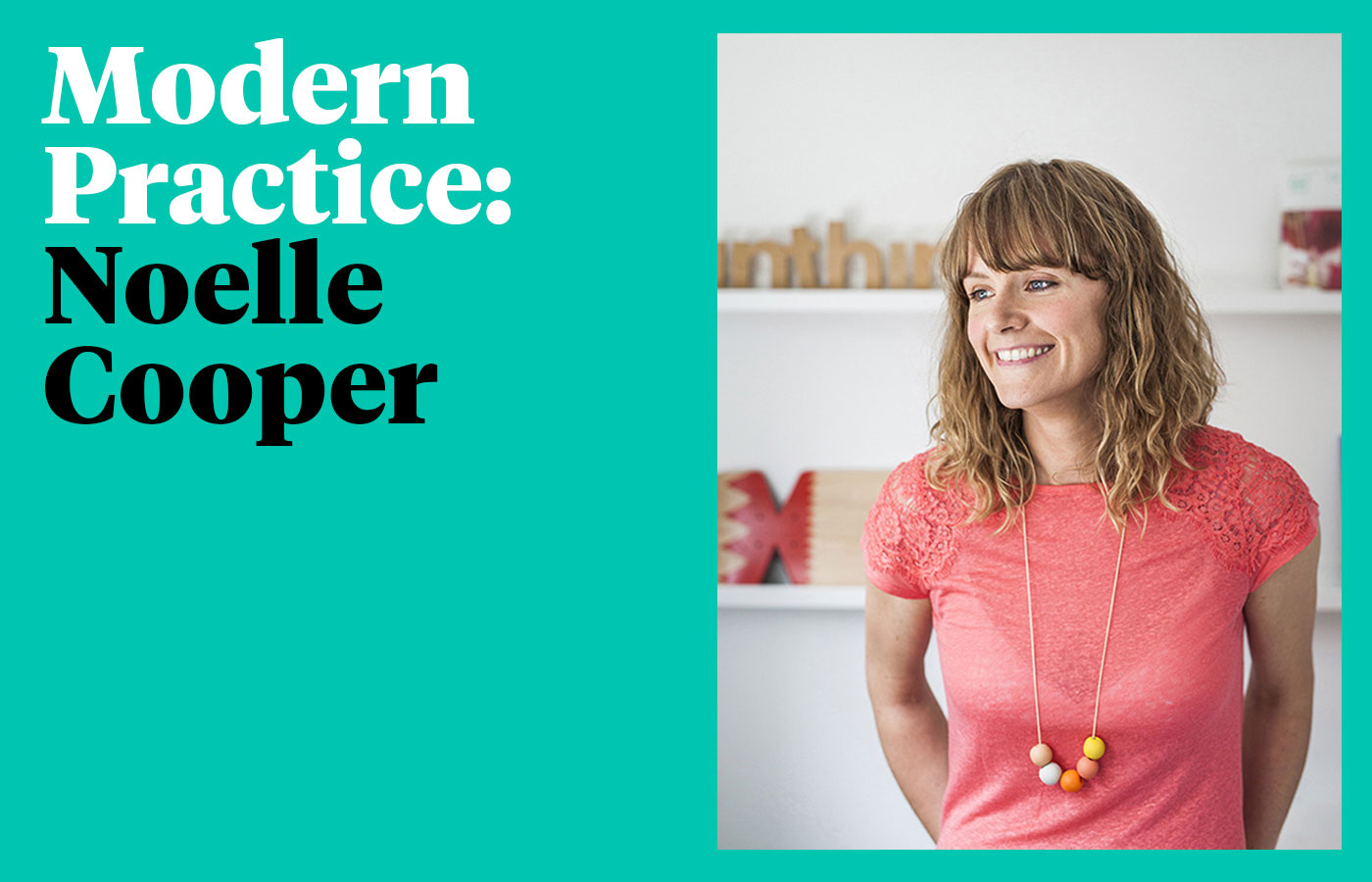What's your background? How did you get to where you are?
I graduated from Visual Communications in DIT in 2003. Prior to that I did a course in Design Presentation which was essentially a portfolio course, that’s where I met Colin (the other half of Unthink). From there we both followed different paths, I went on to do my degree then found work in 3 very different studios, each lasting around a year and half. While I enjoyed each studio for very different reasons, the stand out experience was working under my first creative director Denis Kelly, I learned things from him that continue to inform my way of approaching projects today.
Throughout our time in these studios, Colin and I were both doing a lot of freelance work and in 2007 we bit the bullet and started our own studio to focus more on these projects.
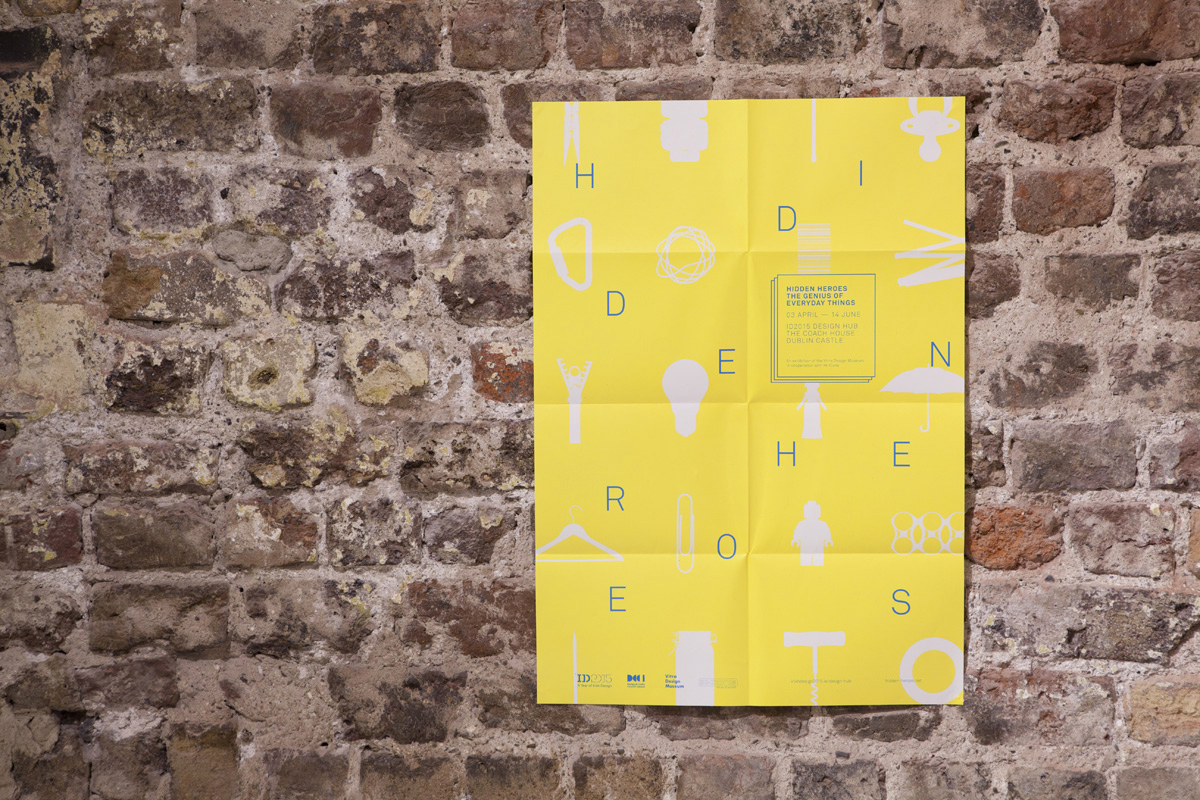
How would you define your role / practice right now?
My role has always been very hands on, as we are a small studio there are no project managers, so I liaise with clients and printers, I design, artwork and even try to look after accounts!
More recently I've begun lecturing in NCAD and as a result I’ve had to assess my role in the studio and manage my time more effectively.
The addition of two graduates to the team last year has also shifted my role slightly. I’m spending less time on my own projects and more as a creative director, overseeing the studio’s output, endeavouring to ensure that the same level of care and enthusiasm is maintained.
Do you think that definition will change?
It’s changing all the time, as I mentioned with the move into teaching, but also the transition from being a designer for print towards more web-based work. So it’s always good to be ready and open to change, it’s important to be able to reinvent yourself every now and again, to keep motivated and fresh and allow yourself to grow with the ever changing world we live in.
Lecturing has been thoroughly rewarding, the enthusiasm of students and staff is infectious and has definitely encouraged me to keep learning and embrace new challenges.
What do you set out to do with your work?
We didn’t set out to do anything in particular with our work, which might sound strange. We didn’t necessarily have a plan, we just went into work and if we had something to do, we did it.
We weren’t really focused on anything other than trying to do a good job. Without looking for it, there always seemed to be a project to do. To a certain extent that’s still the way it is today.
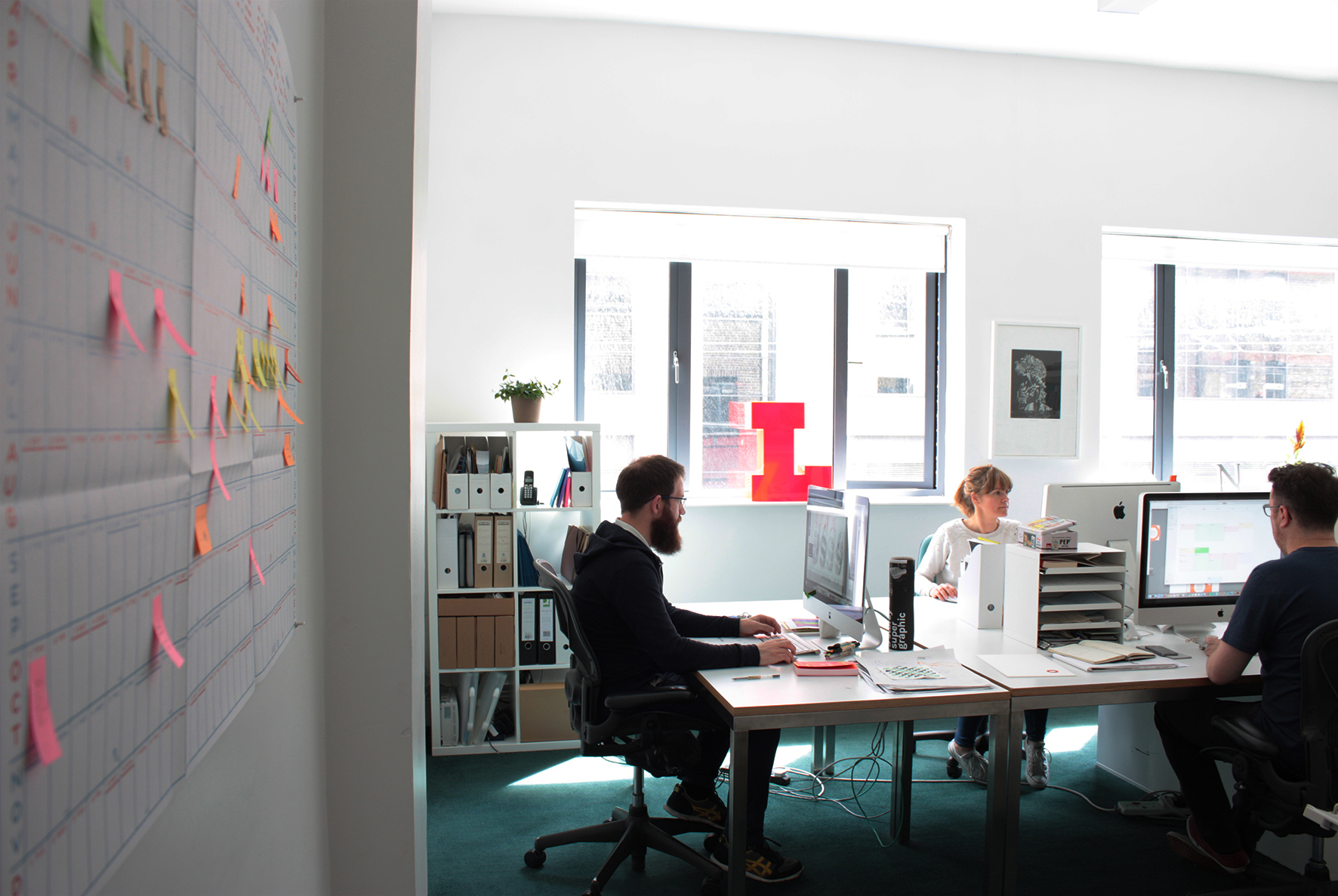
What's your motivation?
The excitement and potential of a job motivates me, the potential to do good work. Being creative, learning something knew, generating ideas based on that new learning or understanding. Knowing that I have the possibility to do something really good in every project and trying to uncover ways to do that. Finding out what is different about the client and how do I actually communicate that.
Possibly more of a challenge is maintaining the enthusiasm when that initial excitement fades, how do you maintain that motivation on projects with a longer lifespan? I haven’t consciously figured that bit out yet, but if I feel unmotivated it usually means I need a break!
What values do you try and instill in your work?
Honesty. Authenticity.
It sounds cliched, but I instinctively try to create something that suits the job and is a true reflection of the client/project and their needs. A lot of the work we do is driven by this, we always try not to impose our own aesthetic, this can sometimes be to our detriment too, the outcome may not be fashionable, but it will always be what the job needed.
Fashion isn’t our main concern, we are intent on helping the client achieve their goal.
What is the main focus of your practice?
We haven’t really had any particular focus, but we are actively trying to concentrate on doing more identities and websites, creating brands rather than just implementing them.
We did make a conscious decision to focus on more web-based work, we took on projects for very little financial reward because we needed to upskill. We had been very focused on doing print work and in more recent times with everything increasingly happening on the internet, we wanted to reflect that in the type of work we do. We focus on content and how best to deliver it, while we’re still learning, having a developer in the studio has allowed us to bring the same sensibility to it and keep that control in-house.
Our focus, just like our roles, is ever changing and it’s important to be flexible and adapt to whatever challenges come next.
What are the areas you work in?
We don’t specialise in any specific area, we take on projects that we feel are potentially rewarding in some way.
For a long time we were primarily focused on doing work for a small number of clients and tended to do a lot of repeat work, but more recently we’re trying to vary that up and work for a range of different people and disciplines. I think it’s more fun to be able to apply our way of working to any outcome, once you have the ability to execute it to the same level.
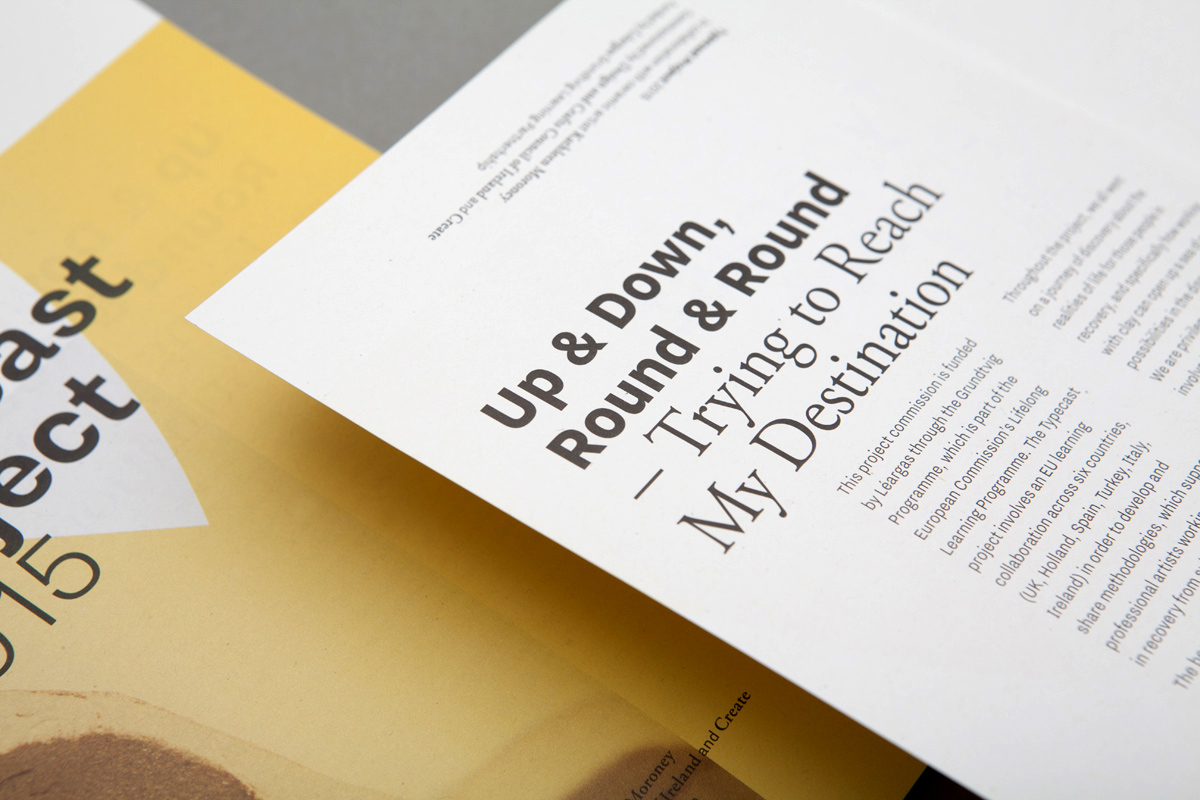
What is the scale of your projects?
We can work on something as small as a business card for a fish and chip shop, to an exhibition space for a national organisation. Despite appearances, some of our web projects have been quite a massive undertaking, involving a huge amount of development and innovation, for our little team at least.
How many projects do you undertake a year?
It’s difficult to say but we are on the go 9 years and recently completed our 1100th job, so that’s a little over 100 jobs a year.
If we were being more thoughtful about it, that’s probably too much to do in one year, we’d much prefer to concentrate on fewer larger projects. The nature of a smaller studio is often a balancing act between exciting work and the work that keeps the wolf from the door.
On closer inspection, in the last year, we completed 96 jobs and there is 4 of us now, so maybe we’re already heading in the right direction.
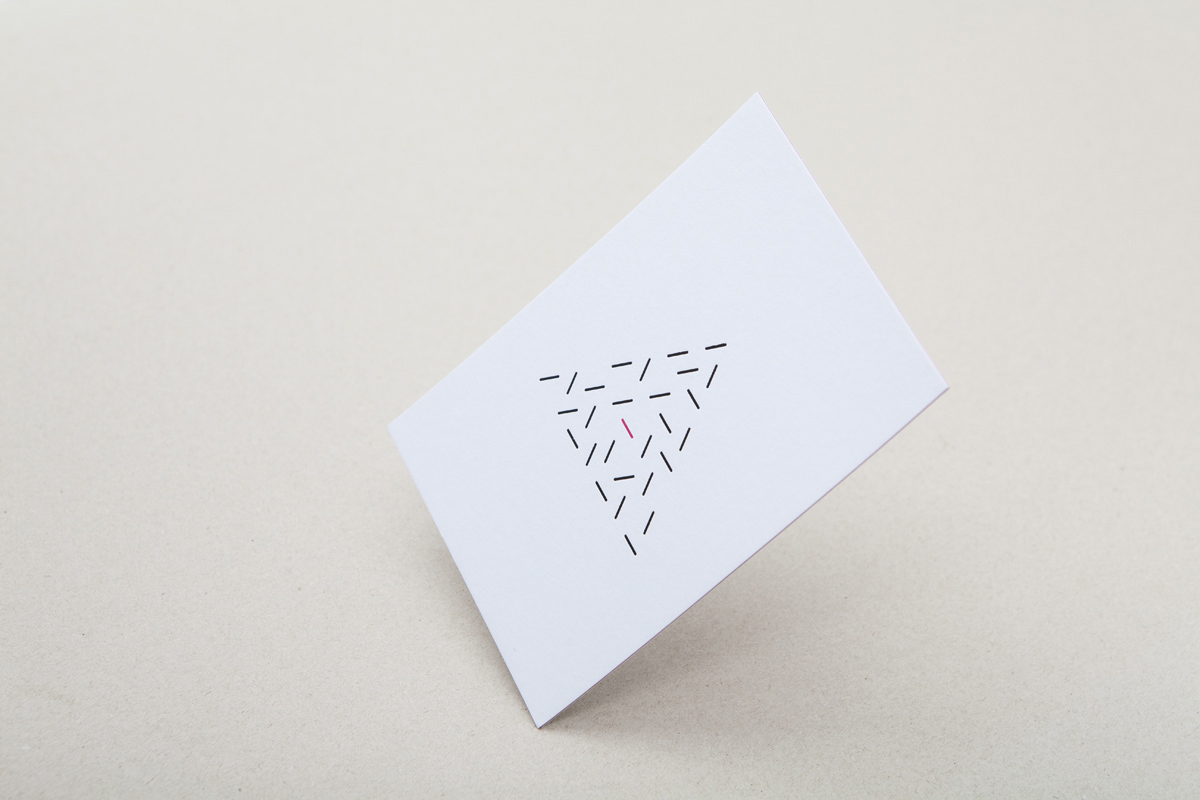
How long are your timelines?
They range in scale from literally updating copy on a poster to a 6 month web/branding project. We are currently working on a couple of projects that are due to launch in 4 months time. Whilst working on bigger projects that take longer to complete, we’d also be chipping away at other smaller projects.
Can you give an indication of the budgets you work with?
The vast majority of work we do would be under €5000, there’s plenty that are worth more and a lot more that are worth less, but we’re constantly attempting to address this balance.
Can you give us a sense of what your working week would be like?
I always try to start the week off with a production meeting, to get a sense of the week ahead, for the studio. I endeavour to schedule any meetings in the first half of the week so that Wednesday through to Friday I can focus on purely studio work. This doesn’t always work out, but I’m trying to stick to it, otherwise the week becomes a bit fragmented and there's too much room for distraction!
I generally start at 9 and always aim to leave by 7 in the evening.
I try to do other activities in the evenings which forces me to leave the studio.
What type of outputs/outcomes do you deliver?
Everything. We regularly do print, web, identities, exhibitions, skateboards, motion, pretty much most things, although not a whole lot of packaging or any apps, yet.
Do the people you work with understand what you do / understand the value?
99% of our work comes from recommendations, so potential clients have likely seen our work elsewhere and want something similar. So while they might understand what we do, it’s not certain they understand the value of it.
We like to try and educate them in a way thats not forceful, we collaborate with and include them in our process, in the hope that they value it and appreciate the outcome all the more.
Something that we’ve always enjoyed is the lack of a defined outcome, uncovering, through the process what needs to be communicated and then designing the best way to do that. Somebody could approach us for a brochure and leave understanding they need a website, so it’s important that they’re open to or prepared for that possibility.
What do you consider a successful project to be?
The client is happy, we are happy. We get paid. The client returns for more and tells their friends (and anyone else who’ll listen!)
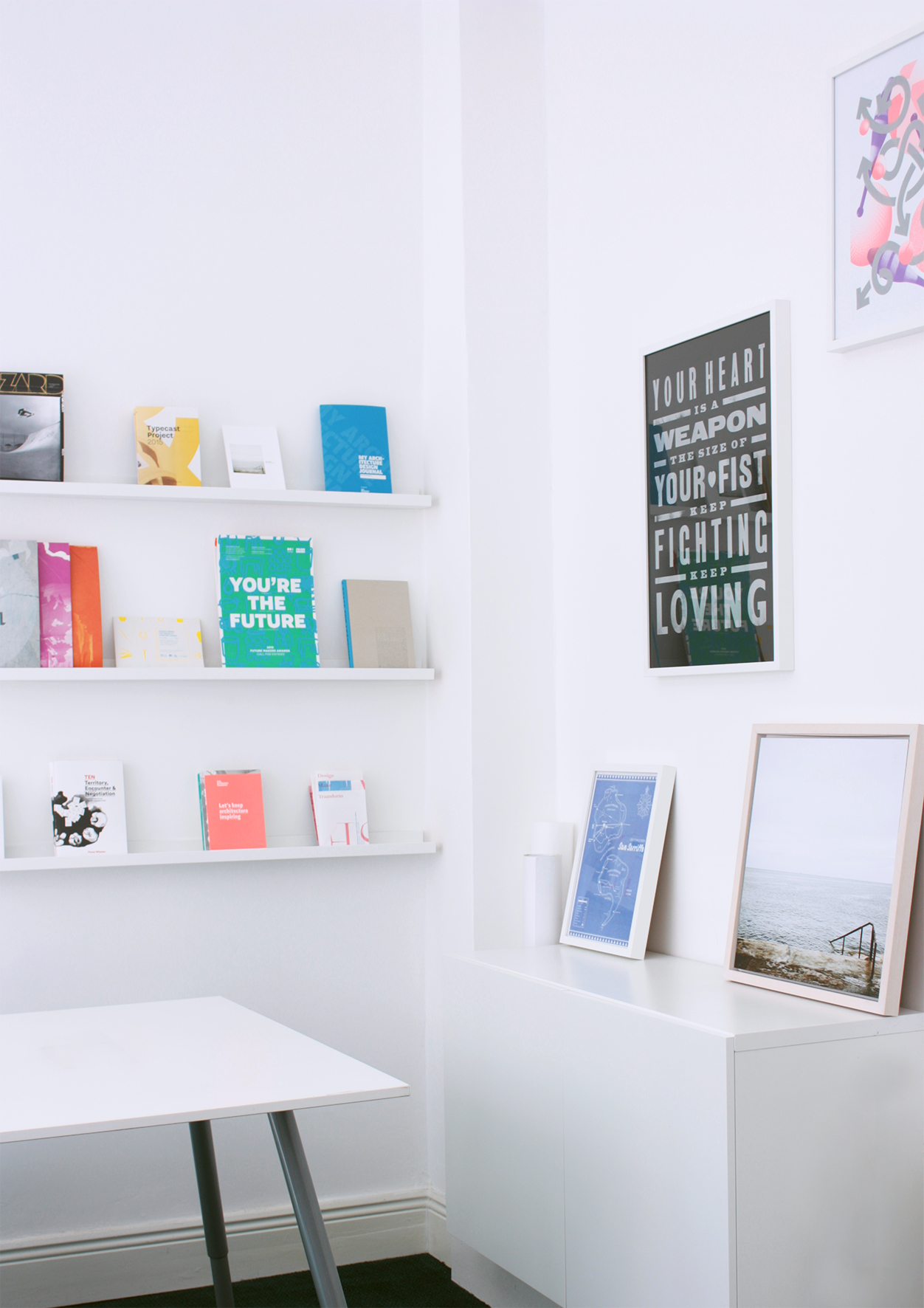
What do you feel is the impact of what you do?
The client succeeds in what they’re trying to do. It works.
Enabling people to do what they'd hoped and more.
What's the most important thing to get right in order to do your job properly?
Understanding the brief is paramount, to really get to grips with the subject, the client and the audience. We very much focus on the client’s needs and what they’re trying to achieve, this becomes apparent when generating the initial brief.
Content is also essential for a successful project, without it there is nothing. Often times it’s the one thing that prevents a project from progressing but we work with photographers and copywriters to help them figure things out.
Are you working the way you want to? What would you change?
It’s definitely a time of change for us, the type of work we are doing is evolving, how we do it is evolving. Whereas we would have felt very in control of the way things worked up until 2 years ago, now we are back to finding our feet again. It is enjoyable to be at a point where you’re not just going through the motions, but it is both inspiring and disconcerting at the same time.
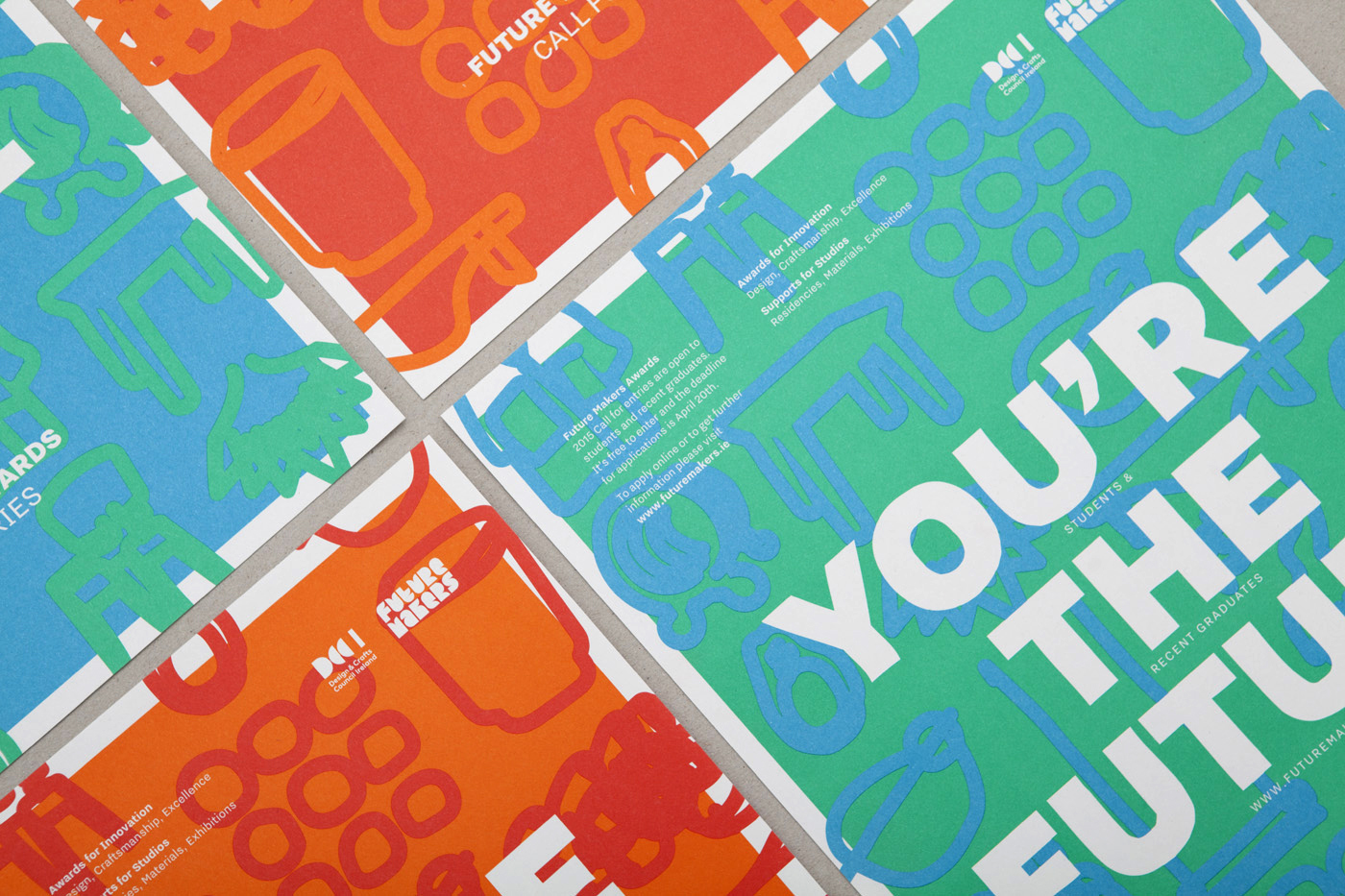
Are we doing what we want?
Maybe we would like to be doing more design-led stuff, more well paid work but we are still doing the best we can with what we’ve got in front of us. I think that if we’re going to change anything, it’ll be gaining that control. We’ve just been winging it, next year we’ll be ten years in business, and if that’s not a good incentive to reassess where we are going, I don’t know what is!
We’ve worked with some great people, in and out of the studio, we’ve built up really strong relationships and we’ve gotten to do things we’ve never dreamed of, I guess we’d like to keep doing that. Part of the fun of not having a particular direction is not knowing what’s coming next.
My trusty mentor and good friend Brendan once described us as a boat without a rudder – the wind blows in many directions and we get taken along with it.
So to celebrate our 10 years, next year we’re hoping to get a rudder.
